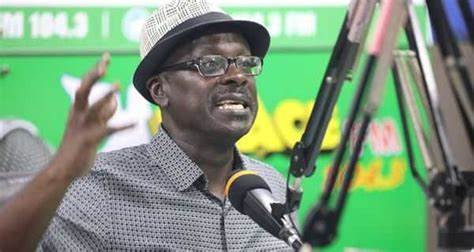Source: Myjoyonline.com
A Fellow at the Centre for Democratic Development (CDD), Professor Kwaku Asare, has described the latest ruling of the Supreme Court, which allows dual citizens to hold certain public offices, as a bold decision and a victory for democracy.
This comes after the Apex court, in a 6-1 majority decision, struck provisions of the Citizenship Acts 2000 as unconstitutional, paving the way for dual citizens to be appointed to key government positions previously restricted to single citizens.
According to JoyNews’ parliamentary correspondent, Kweku Asante, a lawyer named Bright Otchere Agyekum filed the action in the Supreme Court challenging sections of the Citizenship Acts 2000, which prohibited certain persons from having access to high offices.
Mr Bright argued that those specific acts in Section 16 of the Citizenship Acts 2000 clearly contravened the 1992 Constitution, for which reason he and his team of lawyers wanted the Supreme Court to strike them down as unconstitutional.
It took some back and forth in the Supreme Court as Mr Agyekum and his team made their point about why they believed that these sections of the Citizenship Acts were unconstitutional and had to be struck out.
The Supreme Court, after thorough consideration, rendered their decision. In a 6-1 majority decision, the court ruled that Section 16(2)(a) to (l) of the Citizenship Acts 2000 was unconstitutional and struck it out as unconstitutional.
Reacting to the Supreme Court ruling on JoyNews on Thursday, April 25, Prof Asare said this is a battle that has been waged since 2006, stating that he has always had problems with the way the court and the country interpreted Article 94(2)(a) and also Article 8(2) of the constitution.
He noted that Article 94(2)(a) has not been touched by the court after its decision to strike out section 16 of the Citizenship Acts as unconstitutional.
“Article 94(2)(a) has not been touched at all. That is the article that disqualifies persons who owe allegiance to countries other than Ghana from becoming MPs and of course, if you cannot become an MP, there are other positions you cannot hold.”
He argued that this article has not been touched by the court, adding that it is currently in Parliament and things are being done to amend the Act.
The CDD Fellow explained that the Supreme Court has only struck out Section 16(2) of the Citizenship Act that he had previously raised a similar issue in court where he argued that it was unconstitutional for Parliament to add offices without specifically amending the constitution.
“But the court then did not agree with me, it was a 7-2 decision. So I’m very happy that the court appears to have departed…… and now said look, you cannot just disqualify people without amending the constitution.
“If you want to disqualify people, then you have to amend the constitution. You cannot just get a majority of one and then say well, everyone who works for JoyFM is disqualified from holding office. No, you can’t do that, it has to be a constitutional amendment,” he stressed.
Mr Asare emphasised that nothing would be lost if a Member of Parliament is a dual citizen. He stated that there is no cause for concern even if there are two or three MPs in Parliament who hold dual citizenship.
“What is the fear that one, two, or three people who are dual citizens are going to go to Parliament and suddenly cause havoc?
“Our bigger problem is not with dual citizens; our bigger problem is with people, single citizens, or dual citizens who are greedy, who are corrupt, stealing money, and so on,” he said.
He expressed that every Ghanaian, regardless of their location in the world, is welcome to contribute to solving the country’s problems.
Prof Asare added that in these modern times, the country must embrace the reality that due to increased mobility, individuals may hold multiple citizenships.
Source: www.myjoyonline.com








